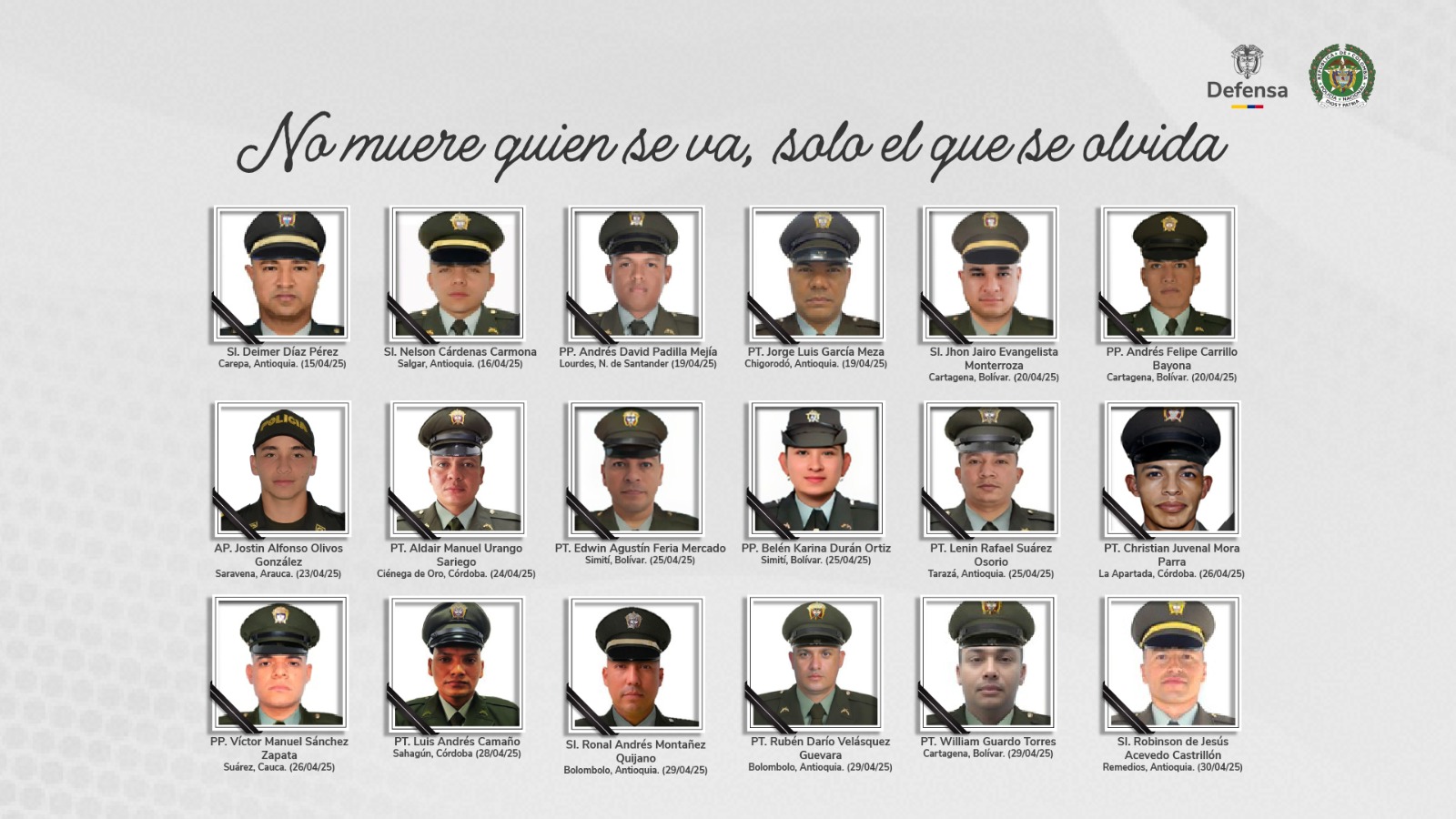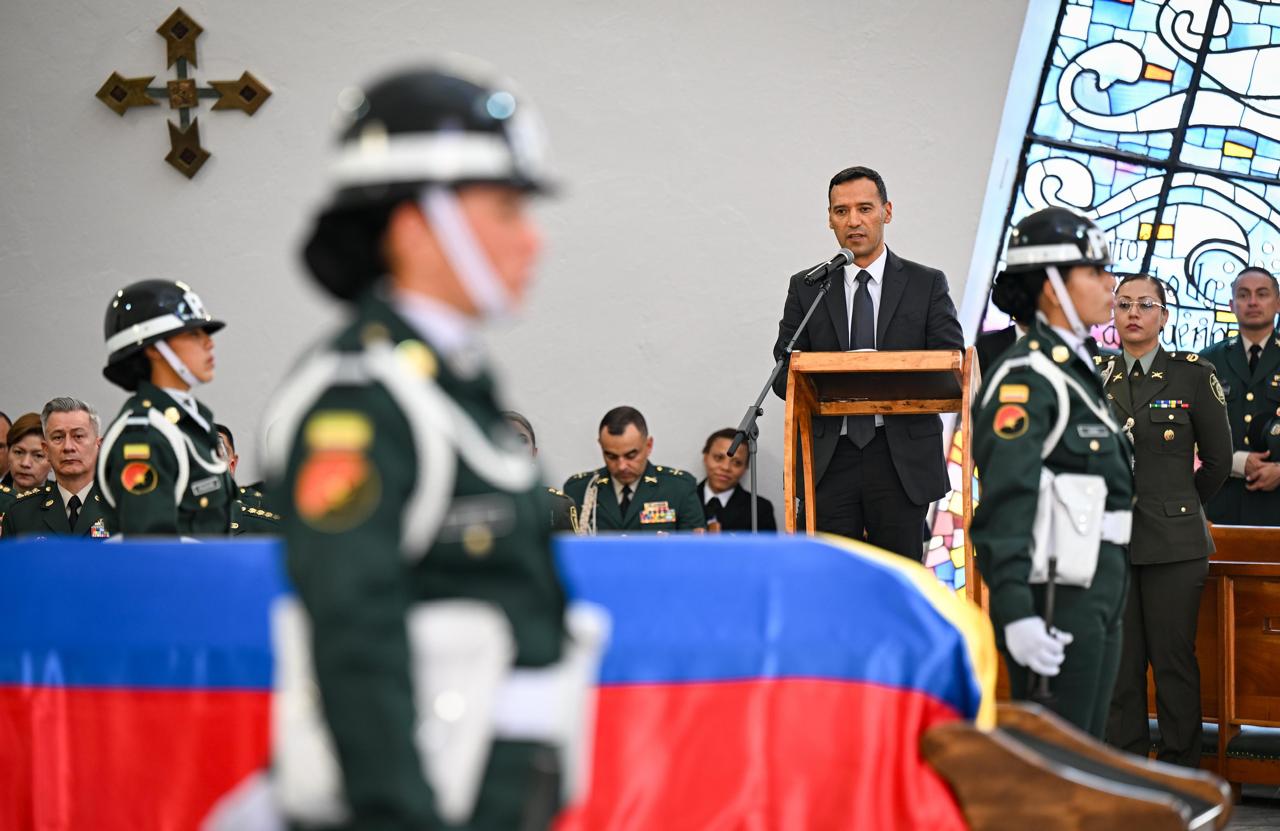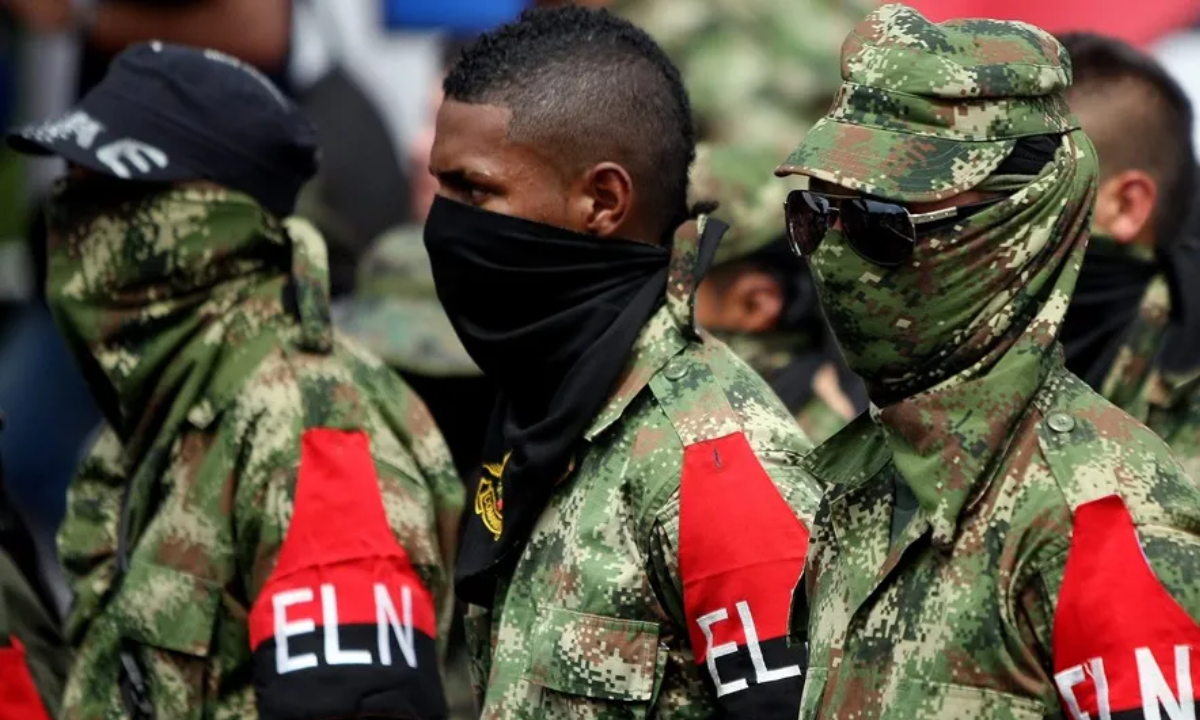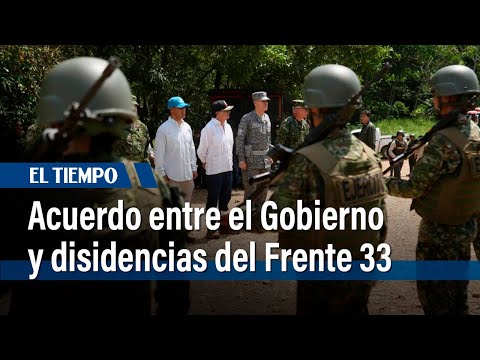'Total Peace is not a state policy. It's an improvised fantasy,' former President César Gaviria said.

For more than two weeks, the country has been in the midst of a new "pistol plan" led by the "Gulf Clan, " which has left more than 20 members of the security forces dead.
The string of attacks has called into question the government's "Total Peace" policy, which has already been criticized by people like former President César Gaviria.
The former president provided an overview of peace in Colombia, speaking not only of the " Pistol Plan" but also of the humanitarian crisis in Catatumbo. Gaviria was critical of the government's lack of action and silence. "There are times in a country's history when silence is tantamount to complicity. While armed groups intensify their offensive against the security forces, while communities are displaced, extorted, and subjugated by criminal organizations, the government of President Gustavo Petro responds with rhetoric, hesitation, and bureaucracy," he asserted.

Police officers killed in a "pistol plot." Photo: Courtesy
The Liberal Party leader asserted that "Total Peace" is not truly connected to the 2016 Peace Agreement. He also criticized the declaration of a state of internal unrest in Catatumbo, which he asserted sounds more like a "campaign promise than an emergency measure."
The full statement The document, titled "X-ray of a Failed Peace: The Foretold Failure of 'Total Peace'," consists of four pages in which the former president states:
There are times in a country's history when silence is tantamount to complicity. While armed groups intensify their offensive against the security forces, while communities are displaced, extorted , and subjugated by criminal organizations, the government of President Gustavo Petro responds with rhetoric, hesitation, and bureaucracy.
What kind of leadership allows the Gulf Clan's "pistol plan" to murder more than twenty police officers without a strong institutional response? What kind of perverse logic is it that, in the face of terror, responds by saying "we must verify"? Verify what? That they're dead? That the reports aren't lying? That the State no longer has territorial control?

Defense Minister Pedro Sánchez during the funeral of one of the slain soldiers. Photo: Courtesy
“Total Peace” is not a state policy. It is an improvised fantasy, designed without a military mind, without strategic intelligence, without a realistic roadmap. Delegating its implementation to three entities—the Office of the High Commissioner for Peace, the Ministry of the Interior, and the Implementation Unit—has proven to be a disaster. None has operational capacity, none has an effective presence in critical territories, and none articulates a comprehensive strategy.
Meanwhile, Peace Commissioner Otty Patiño appears and disappears, absorbed in opaque negotiations. The Ministry of the Interior prioritizes political agendas, and the DNP finds itself mired in internal conflicts and leadership voids.
In 2016, Colombia signed one of the most ambitious peace agreements in the world. But today, the agreement with the FARC is in an induced coma. The president himself confessed at the United Nations: "Colombia does not want to comply with it." What he didn't say is that this decision is political, not national. It's his own. The government has preferred to focus on "Total Peace," a parallel initiative with no real connection to the Havana Agreement, and which, instead of strengthening it, sabotages it from within.

The former president was critical of the decree of internal unrest in Catatumbo. Photo: Private archive
The situation in regions like Catatumbo is scandalous. In January, more than 60 people were killed in a massacre perpetrated by the ELN against FARC dissidents. Fifty thousand people were displaced. Children were recruited. Indigenous communities like the Barí are on the brink of extermination. And the government's response? A decree of internal unrest and a "Social Pact" that sounds more like a campaign promise than an emergency measure.
As Judge Jorge Ibáñez Najar aptly stated in his dissenting opinion on Judgment C-148 of 2025 : this is not an unexpected crisis; it is the result of years of state inaction. What is happening in Catatumbo and in many regions of the country is the direct result of state abandonment.
The ceasefire policy has been a tool to weaken the security forces. Soldiers and police are unable to operate, while illegal groups take advantage of the situation to rearm, occupy territories, and consolidate illicit economies. There is no effective oversight. There are no consequences for noncompliance. There is no leadership. Every unilateral ceasefire without conditions has been a blank check for organized crime.
And when one ELN front fails to comply, the entire process collapses. Because clear rules, internal differentiations, and real verification mechanisms were never established. Total Peace isn't just weak. It's naive.
So far this year, there have been more than 23 armed strikes. Roads are blocked. Schools are closed. Communities are trapped. Inter-municipal transportation is paralyzed. Criminal gangs impose their laws, collect "taxes," kidnap, recruit, and extort. The state is conspicuous by its absence. And instead of sending helicopters, planes, or reinforcements, the government limits itself to organizing prepaid demonstrations and denying the seriousness of the situation.

ELN Photo: EFE.
The Public Force, meanwhile, operates with scarce resources. Its equipment is poorly maintained. Its intelligence is outdated. An air fleet is grounded. Territorial defense is no longer a priority.
The UN and the OAS have extended their support, but their patience is running out. The head of the UN Verification Mission, Carlos Ruiz Massieu, warned that decisive implementation of the agreement with the FARC would have avoided many of the current crises. The Security Council expressed concern about the lack of guarantees for former combatants and communities. The MAPP-OAS documented forced recruitment, slave labor, and systematic violence against the civilian population.
This isn't a failure of the international community. It's a failure of the national government, which has made rhetoric its shield while the country crumbles.
Total Peace has been, in practice, a policy of permissiveness with armed structures, a renunciation of state sovereignty, and a discursive trap to buy time. Neither peace, nor total. Neither strategy, nor justice. Neither authority, nor results.

The Constitutional Court partially upheld the decree on internal unrest. Photo: Private archive
Transnational crime is advancing. Drug trafficking is growing more sophisticated. Urban violence is expanding. And the official response remains the same: conferences, unilateral ceasefires, and empty promises. Colombia needs a modern, comprehensive security policy tailored to the new risks of the 21st century. Total Peace is not it.
The country is tired. Communities are exhausted. The security forces are abandoned. Former combatants are threatened. And the government is lost.
Mr. President Petro: governing isn't just rhetoric. It isn't blaming the past or promising intangible futures. Governing is ensuring that citizens don't live under the yoke of fear, that the law isn't a dead letter, that the State is where it's most needed. Peace isn't begged for. It's built with firmness, with institutionality, with legitimate authority. If you couldn't handle the rhetoric of total peace, admit it. But don't continue dragging the country into the abyss.
Colombia doesn't want more promises. It wants results. It wants leadership. And, above all, it wants to live in peace. A real peace. A peace with justice, with security, with a state. Not this failed simulation that no one believes anymore.
You may be interested in: 
Agreement between the Government and dissidents of the 33rd Front. Photo:
Maria Alejandra Gonzalez Duarte
eltiempo





